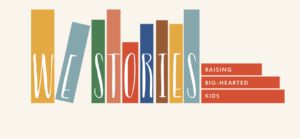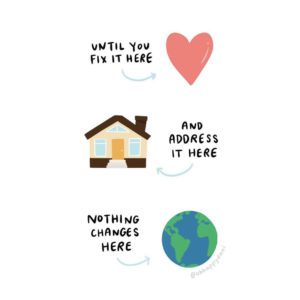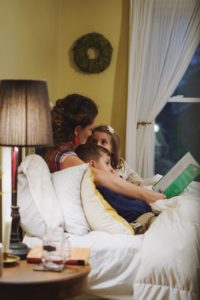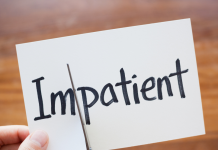A locally based resource that equips parents to raise children in a racially diverse world, We Stories takes a hands-on approach to educating children.
I’d like to take a moment to address my fellow white people. If you’ve read or watched the news in the last few weeks, you’ve no doubt seen the gut-wrenching videos (yes, plural – videos – let that sink in for a moment) of black men being threatened and killed by both civilians and police. You’ve seen the outpouring of grief and anger from your black and brown friends and neighbors. You may have even posted a message of solidarity on social media – #runwithahmaud #standwithgeorgefloyd #saytheirnames.
You may have also wondered what one white person could do in the face of a problem that isn’t a handful of bad actors but a deeply ingrained, systemic problem. The enormity of the problem often leaves me feeling overwhelmed. But imagine with me for a moment what could happen in our community if more and more white families stepped off of the sidelines and joined the movement for change. The starting point in this journey for my family was We Stories.

What is We Stories?
A friend introduced me to We Stories shortly after my first daughter was born. We Stories is a local non-profit seeking to engage white families like mine to see that anti-racism work is an essential part of parenting. Their Family Learning Program teaches parents how to use picture books as tools to talk with their children about race and create ongoing family habits that counteract racism. This creates the momentum necessary to get the St. Louis area “unstuck” from our cycle of segregation and deep social inequity. Ever since the uprising in Ferguson popped my little bubble of privilege, I had been looking for a way to create change within myself and in the community. I was curious and had so many questions, so I dug into their website to see if the program was right for us.

Anti-Racism and Parenting
At first, I wondered what anti-racism had to do with parenting. In a word, everything. Families of color start talking about race with their children from an early age. It’s a matter of life and death. White families, on the other hand, are three times less likely to talk with their children about race. The majority rarely or never talk about race at home.[1] And, when families don’t talk about race, children perceive that it’s taboo and draw their conclusions from the messages around them.
My daughters are young, so while I fully expected to have conversations about equity and justice with them when they were older, it didn’t seem critical to talk about race right now until I discovered some startling statistics. Babies as young as six months notice racial differences in the faces around them and show preference for the race of their caregiver.[1] By age three, children have absorbed that white middle-class culture is the norm or standard.[1] And, by 7, children reflect the biases of the adults around them and make judgments based on who they perceive to have more or less power.[1] Clearly, whether I am talking to my daughters about race and difference or not, they are picking up what the world around them is laying down.
I was all in on the concept, but I definitely needed help with execution. So, our family joined the January 2020 family learning cohort. The program began with an opening group session where we met other families and received a bag full of picture books geared toward each child’s age group. While the children split off for storytime with educators, parents broke out into small groups to discuss how to weave in discussions of race with the books. I left that day feeling energized and empowered. One of my biggest fears going in was that I would say the wrong thing or word a concept poorly. As it turned out, that was a common fear that parents have, and it’s okay to make mistakes and learn. Because this isn’t a one-and-done conversation, I almost always have opportunities to try again and make corrections.

Applying What We Learned
For my almost-two-year-old, discussion means pointing out similarities and differences as we read. She LOVES one particular book called Please Baby Please, where we point out that Baby has dark curly hair and brown skin in contrast to my daughter’s blonde hair and peach skin. Then we point out the things they have in common: waking up their mommy too early, throwing a fit about leaving the playground, taking baths, and getting kisses from their parents at bedtime. My four-year-old notices the differences and goes slightly deeper. If you have a preschooler, you know this group has a deeply ingrained sense of fairness. In her favorite book, Amazing Grace, we talk about why it’s unfair to tell someone they can’t do something because they are different. Their enjoyment of these books lit a fire in me to make sure the books and media in our collection offer a view of a variety of races and cultures. We recently purchased Sulwe and Hair Love to add to our library. The We Stories family resources continue to provide suggestions on books to add as my girls get older.
We Stories has been as much about education for me as it has been for my kids. It’s allowed me to connect with other like-minded families and to continue to learn and grow together. To date, the program has touched over 1,000 local families and has recently launched its first national cohort. And these families are taking what they’ve learned to advocate in their schools, daycare centers, faith communities, and workplaces. Our region and country are at a pivotal point in history, and if you, like I was, are looking for a place to start, I highly recommend checking out We Stories! Even if you don’t join a cohort right away, their blog is an amazing resource, as well as the information they share on Instagram.
Citation: [1.] What We Know. WeStories.org. Accessed 30 May 2020.











Thank you for sharing this. I think We Stories is a hidden gem and great resources for families. I strongly believe when it comes to race and equity, if we as parents aren’t intentionally teaching something then we are unintentionally teaching something we likely don’t intend.
Comments are closed.